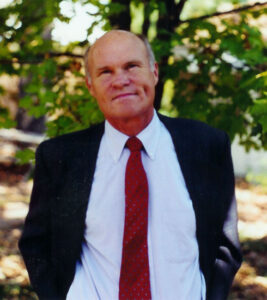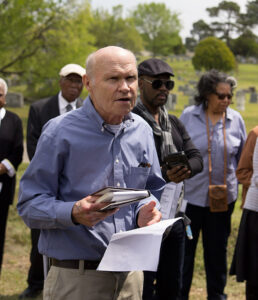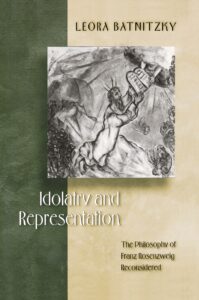calsfoundation@cals.org
The Whole Story: What an Encyclopedia Can and Cannot Capture

Recently, I went to the memorial service for Grif Stockley, a well-known Arkansas lawyer, writer, and historian who died in January in Virginia, where he had been living to be close to his daughter. As we all told stories about the experiences we had had with Grif, it occurred to me that no biography, especially not something as brief as the entry on him in the CALS Encyclopedia of Arkansas (EOA), ever really does justice to anyone’s whole story. No biographer could completely capture who Grif was as a person; as cliché as it might be, we all really do contain multitudes.
I knew Grif largely as a fellow traveler in the world of Arkansas history, specifically the subset of that field that focuses upon racial injustice. But others knew him as a brother, a father, a grandfather, a spouse, a friend of long duration, an opponent on the tennis court, and more. And even if we could gather the perspectives of everyone who knew him, we would still come up short, because those perspectives are colored by our own selves. Moreover, we might never be aware of the experiences people have that they never share but that shape them in a fundamental way.

But here is something I can share with you. Grif’s last book focused upon the Negro Boys Industrial School Fire of 1959. The story attracted a lot of attention in the media, even becoming the subject of a 2019 podcast produced by CNN. The next year, a high school group from Mississippi came to Little Rock and put on a play based upon the event. There were a few showings at the Mosaic Templars Cultural Center, and I accompanied Grif to two of them. I don’t know that I can describe the wonder and awe he so clearly felt at watching this story he had worked hard to uncover be presented on a stage by students who weren’t even from Arkansas. It had taken years for Grif to get that book published. The first press had rejected it practically on sight, and there were some delays at its eventual publisher. But all the frustration Grif had experienced in bringing the book to fruition melted away as he watched these students tell the story in their own way. He didn’t wear the smile of one reassured about his own legacy. He wore the smile of one who saw real hope in the generations coming up.
And that’s something that cannot really be captured in an encyclopedia entry.
Recently I read Leora Batnitzky’s Idolatry and Representation, a study of the philosophy of German Jewish thinker Franz Rosenzweig. Batnitzky’s work explores some of the nature of language as understood by Rosenzweig, specifically the limitations of language in capturing reality. Classical philosophers defined truth as a correspondence between a statement and reality; consequently, the goal of many philosophers was to refine more and more thoroughly their statements so as to make them better manifestations of truth. However, Rosenzweig saw this as a bit of a dead end, given that there are inherent limitations to what language can capture. To quote from Batnitzky:
“Language, and language only, is reality’s fragmentation, a fragmentation that is rooted in the temporal existence of finite human beings who die.”
And:
“Language is immanent because by definition it claims to encompass all of being. To claim completely is what it means to speak, to say what the case is. Yet at the same time, every speaking excludes something, because, in contrast to thought or mathematics, language can never be all-encompassing. After being spoken, speech negates itself because the reality of that which it spoke is no longer present.”
 Language can never be all-encompassing. We can never produce a real one-to-one correspondence between the reality of, for example, a recently departed friend, and that person himself. A resource like the Encyclopedia of Arkansas can never be comprehensive. But it doesn’t need to, because language isn’t about reality. Language is about utility, about finding our way in the world. If I say to you, “Meet me by the tree at the top of a hill,” we don’t need precise definitions of tree or hill, an understanding of what constitutes tree-ness and hill-ness, to keep our appointment—we just need a basic agreed-upon standard in order to coordinate our actions, metaphysics be damned. Maybe beneath that tree on that very hill is where you had your first kiss, and so it has special resonance for you, but right now, we’re just trying to arrange a meeting, and I don’t need to know all of that.
Language can never be all-encompassing. We can never produce a real one-to-one correspondence between the reality of, for example, a recently departed friend, and that person himself. A resource like the Encyclopedia of Arkansas can never be comprehensive. But it doesn’t need to, because language isn’t about reality. Language is about utility, about finding our way in the world. If I say to you, “Meet me by the tree at the top of a hill,” we don’t need precise definitions of tree or hill, an understanding of what constitutes tree-ness and hill-ness, to keep our appointment—we just need a basic agreed-upon standard in order to coordinate our actions, metaphysics be damned. Maybe beneath that tree on that very hill is where you had your first kiss, and so it has special resonance for you, but right now, we’re just trying to arrange a meeting, and I don’t need to know all of that.
Words are signposts. Likewise, encyclopedia entries are signposts. Most people who are looking at the entry on Grif Stockley probably only need some basic information. But for some of us, he was much more than what is written there. And the same is true for everything on the EOA. An entry on a town cannot capture what it means for someone who grew up there or who visited family there on a regular basis. An entry on a lake or stream won’t tell you what it’s like to fish or skinny-dip in those waters. We have entries on many a restaurant, but if you want to know what the barbecue at that one place tastes like, you’re going to have to make a visit yourself. Just remember that you can try to convey your experiences to people, but as Batnitzky wrote, “language can never be all-encompassing.” You’ll just have to set up what signposts you can. (That said, the EOA does offer a Comments button at the bottom of each entry that readers can use to offer their own memories or thoughts about a subject.)
That’s what we’re doing at the EOA, just setting up signposts, blazing trails for the people who come after us. Maybe that was the joy I saw on Grif’s face three years ago. The joy of someone who realized that people had not only followed the path he blazed but had moved on to chart their own trails in the wilderness.
By Guy Lancaster, editor of the CALS Encyclopedia of Arkansas



